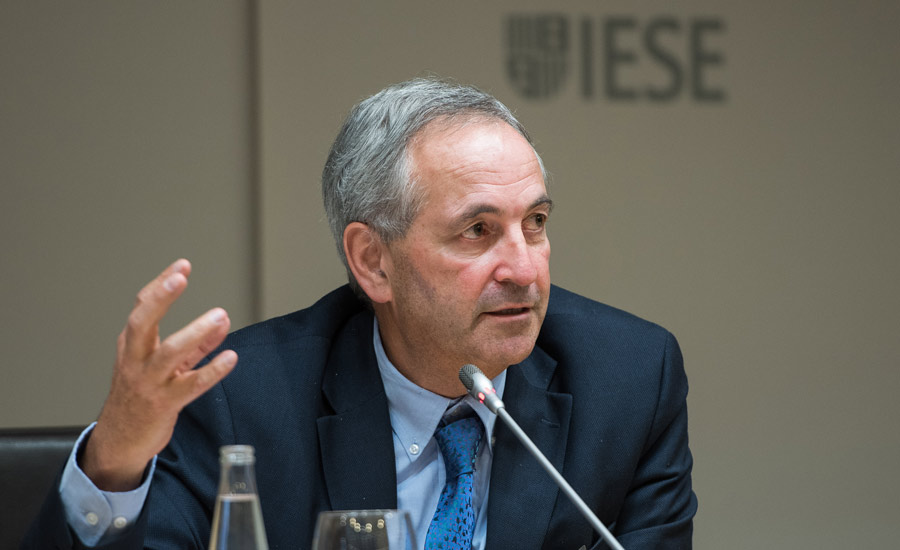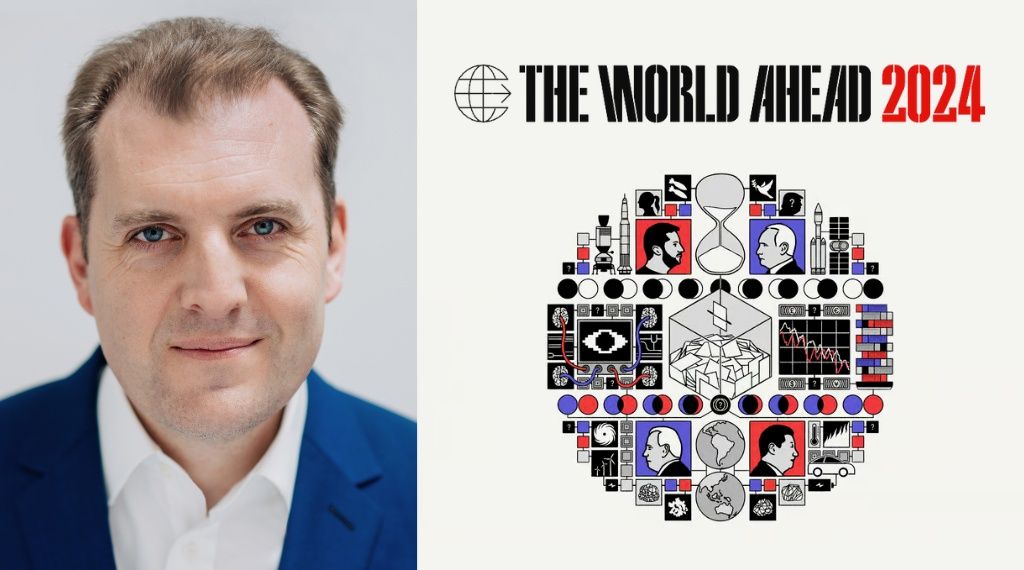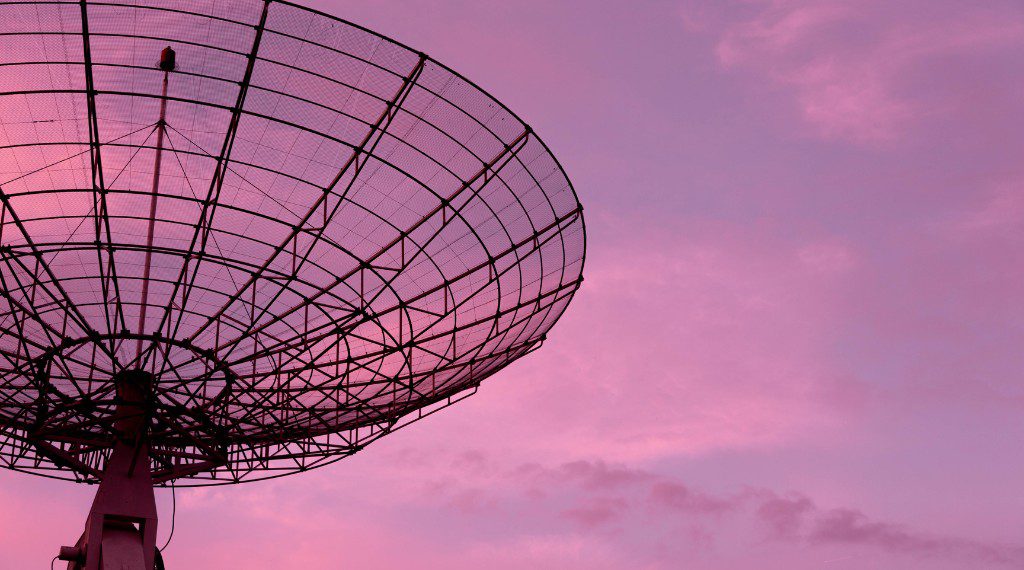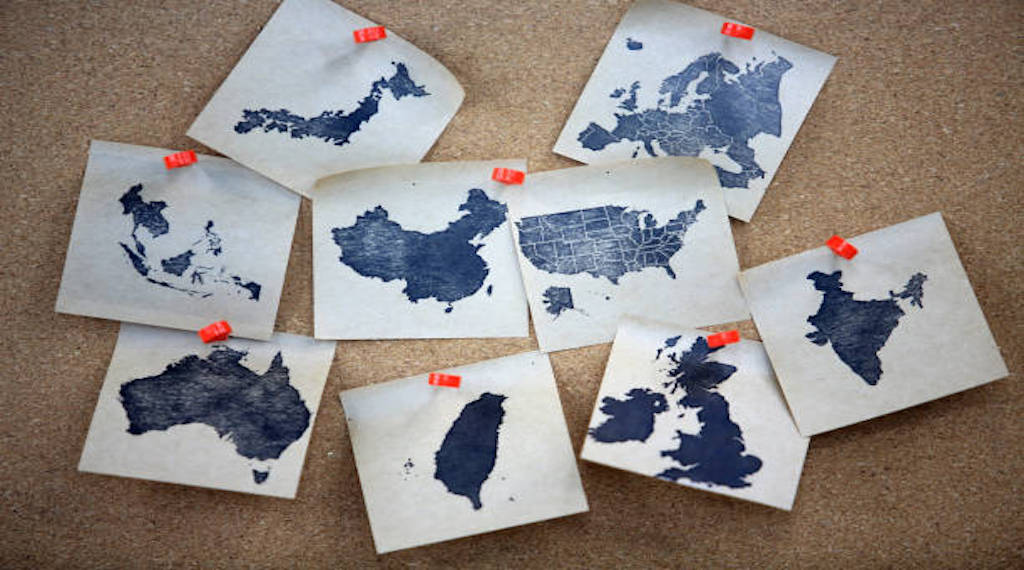
Stories
2017: A Few Certainties in an Unpredictable World
In a year of global uncertainty, The Economist 's Daniel Franklin looks at what lies ahead
March 23, 2017
Who will be the key figures in the political and economic arenas in 2017? That was just one of the questions fielded by Daniel Franklin, executive editor of The Economist, at a session for IESE alumni on the school’s Madrid Campus this week.
Anticipating future events in an ever-changing world is no easy task. Nonetheless, Franklin provided some insights into a year marked by questions yet to be answered. One thing he made abundantly clear was that he does not foresee huge economic growth in 2017.
Donald Trump: Omnipresent
U.S. politics has seldom been as fascinating as they are with Trump in the White House, and much of what is going to happen in the coming months and years will depend on his decisions. The behavior of the U.S. president – who Franklin described as unconventional, unpredictable and uncomfortable – is disconcerting analysts, the media and diplomats, not to mention many Americans. Since taking office in January, Trump’s predominance and presence have been absolute.
Two Re-emerging Markets
While double-digit growth may be a thing of the past for the world economy, two countries will stand out from the rest. They are India, whose economy will carry on growing at a rate of around 7.5% over the next few months, and China, whose middle class is continuing to swell unrelentingly.
Danger: Nuclear Weapons
Franklin warned that no one should be complacent about increased talk of nuclear weapons in political circles. Vladimir Putin’s public references to Russia’s nuclear arsenal have become more and more frequent, and instability in theKorean Peninsula has been spiralingever since Kim Jong Un came to power. Additionally, however remote it may be, the possibility of a weakened ISIS attempting to acquire nuclear weapons for its worldwide terror campaign cannot be ruled out.
National Elections: A Threat to the EU?
Following the shock of the UK voting for Brexit, could the EU survive without another of its principal members? France is set to go to the polls next month to elect a new president, and the outcome will have a major bearing on the European agenda in 2017. Victory for Marine Le Pen, resulting in France leaving the euro, would be almost the final nail in the European project’s coffin. Franklin, however, thinks a triumph for the leader of the National Front is unlikely. He envisages a win for liberal candidate Emmanuel Macron in a second round of voting, putting fresh wind in the EU’s sails at a time when Europe’s leaders need to regain their citizens’ trust.
2017 will also see elections taking place in Germany, with Angela Merkel widely expected to prevail; in Turkey, where Recep Tayyip Erdogan is looking to increase his powers, with the danger that spells for the west; in China, where Xi Jinping could further tighten his grip on power following the meeting of the Communist Party’s Central Committee; and in Iran, whose nuclear deal with the U.S. is hanging by a thread.
Latin America: A Shift Away From Populism
After years of populism (in Ecuador, Bolivia, Argentina and Peru, for example), the countries of Latin America are leaving the political doctrine in question behind. Venezuela is an exception, however, and the outlook forNicolás Maduro’s government is decidedly gloomy, with the country’s economy set to contract by 8%, according to forecasts.
Brexit: A Painful Process
Once it triggers Article 50 of the Lisbon Treaty, the UK will face tough negotiations with EU member states on matters such as a new trade deal, the status of immigrants, restrictions on immigration from EU countries and the amount it will have to pay as a result of its commitments to European funds. That all adds up to too many unknowns, not only for EU citizens living in the UK, who may lose their rights following Brexit, but also for the country’s economy. So far, the pound’s value has fallen by almost 20%. If inflation were to soar, both the markets and the general public could get very nervous.
Professions of the Future
They might sound like the stuff of science fiction, but drone technician, synthetic tissue engineer, virtual fashion designer, indoor farmer and robot tamer are jobs that already exist. Technology has revolutionized the labor market, and adapting to the future is the only way forward.
COP21: Implementation to Begin
The agreement 195 countries adopted at the United Nations Climate Change Conference (COP21) will start to be applied in 2017. Will its measures be effective in combating global warming? Will all the actors involved play their part? What about the U.S.? The answers to those questions will undoubtedly be in a future report from Daniel Franklin.


